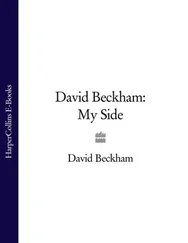As an atheist, I have no illusions about my life and death; they are insignificant in cosmic terms. That's why I have turned down requests to name schools after me, to let my name stand as a candidate for the presidency of a university, and to run for chancellor of another university. I don't have time to try to pad my curriculum vitae or take a position that is merely honorific.
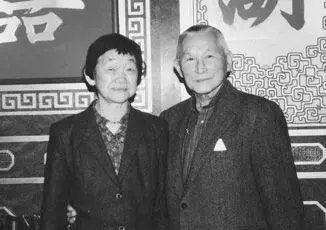
Mom and Dad on their 50th wedding anniversary (March 21, 1984), only two months before Mom's death
I attended a potlatch, a ceremonial gathering, for Haida Chief Watson Price's hundredth birthday. As I pondered the significance of his birthday, I found it overwhelming to think of the world he was born into, a world without planes, refrigerators, television, computers, or even cars. He grew up in the tradition of his people, which had its roots thousands of years ago. And in remembering the stories and lessons of his grandparents, he represented a living memory going back to the early 1800s. For most of us, we will be remembered far more briefly. In the end, as we reflect on the meaning of our lives and our legacy to the future, what more could we ask for than to be remembered with affection and respect by a few people who will survive a decade or two further, by our children and grandchildren? I hope when it's my time to die, I do so with the dignity of my father.
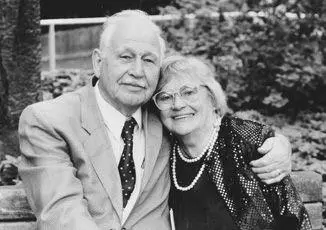
Parents-in-law Harry and Freddy Cullis on her 86th birthday
After my mother died, Dad met a woman named Fumiko Gondo, who had come from Japan to live with her daughter, Naoko, who worked in Vancouver. Fumiko was a Korean who grew up in Japan, and she did not speak English. She and Dad began to take walks together, and Dad enjoyed the opportunity to brush up on his Japanese. Eventually they started spending all their time together, and Dad even gave away Naoko when she married in Japan.
Fumiko was a lovely woman, and she and Dad were a great pair. In the early 1990s when Dad developed a cancerous tumor in his abdominal cavity, Fumiko was devastated. Although he had no pain, he lost his appetite and began to lose weight and strength, and it became clear he was dying. Dad had always said he had no great fear of death. “I've had a great life and I have no regrets,” he would say.
Fumiko boiled large quantities of rice over and over to produce a thick gel of rice concentrate, which Japanese consider extremely nutritive with medicinal properties. As I encouraged him, Dad would doggedly try to get a few spoonfuls down but often gagged with the effort. Finally, a neighbor who was a doctor told me that at this stage of his cancer Dad would not die of starvation, so we shouldn't worry about feeding him if he couldn't eat. It was a huge relief.
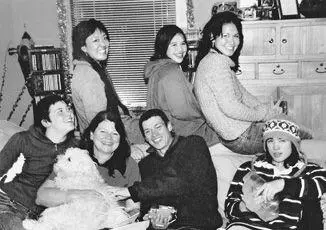
Christmas 2003. Left to right, front row : Severn, Huckleberry, Tara, Eduardo Campos (Tamiko's husband), and Tamo (my grandson). Back row : Tamiko, Midori (my granddaughter), and Sarika.
I moved in with Dad to be with him in his final weeks of life. He was still alert and interested in what was happening in the family. Each night, Tara and the girls would come over, and they sometimes brought slides of one of our trips, often ones we had taken with Dad and Mom. He would greet Tara with, “Well, what adventure have you got for me tonight?”
In the last week, my sisters arrived, and we reminisced about our lives. What struck me was that at no point did we complain about how hard life had been or all the things we had missed out on. Instead, we laughed and cried over stories about family, friends, and neighbors and the things we had done together that had enriched our lives. There was no boasting about possessions or wealth or accomplishments, only human relationships and shared experiences, which are what life is all about.
Dad's great achievement each day was to get out of bed and walk to the bathroom, where he would try to have a bowel movement. He had grown so painfully thin that the skin around his buttocks hung in sheets, and he was so weak that getting to the bathroom and back became quite a feat. Sometimes, in the effort to get his legs off the bed and onto the floor, he would leak a bit, causing him huge embarrassment. We bought rubber mats to go under the sheets, and I finally suggested diapers would solve everything. He was adamant that he would not wear them. Finally, when he had had a particularly messy accident, I called Tara and asked her to get some diapers for Dad. He overheard me and again objected weakly that he wouldn't wear them. Within hours, he slipped into a coma, and his breathing became more erratic and finally stopped. I still think the thought of being made to wear diapers was the final indignity, and he simply checked out, a peaceful death at eighty-five.
As he was dying, I wrote Dad's obituary and he fine-tuned it. “Don't say ‘passed away,' ” he said. “Say ‘he died'.” Here's what the obituary said:
Obituary, May 8, 1994
Carr Kaoru Suzuki died peacefully on May 8th. He was eighty-five. His ashes will be spread on the winds of Quadra Island. He found great strength in the Japanese tradition of nature-worship. Shortly before he died, he said: “I will return to nature where I came from. I will be part of the fish, the trees, the birds — that's my reincarnation. I have had a rich and full life and have no regrets. I will live on in your memories of me and through my grandchildren.”
Dad had become interested in Shinto near the end of his life, and his Shinto beliefs fit well with the First Nations sense of connection with nature. Certainly if the laws of physics apply to our bodies, we are made up of the earth through the air, water, and food we ingest, and when we die, the atoms that comprise our bodies don't vanish but are eventually recycled back through the biosphere. So we return to nature, which gave us life in the first place, and as Dad's obituary said, we will still be everywhere. I like that idea, although it doesn't satisfy — as religion does — that egotistic desire to continue on in some conscious state.
Years after Dad died, an interviewer, knowing how important Dad had been to me, asked whether his death was one of the most painful moments of my life. I had to answer no. How could it be? I miss him and Mom tremendously and think of them every day, but Dad had a rich, full life, had been lucid until hours before his death, and had no pain or fear of death.
THE SENTIMENTS INCLUDED IN Dad's obituary are what I hope will be included in mine. I have had a rich and full life. I've selfishly acted on my priorities and impulses, often when I should have spent some of that time on those I love. I have hurt others, including my own family, but not deliberately out of meanness, and I hope that my life can be summed up as a positive addition to the human family.
Perhaps one or two programs I've done on television or radio will be played again after I'm dead, perhaps a book or two I've written will be read. That would be nice. But the one true legacy of any value is my children and, through them, my grandchildren. My grandchildren may remember something they learned from me or shared with me and, if I'm lucky, they may even pass that snippet on to their grandchildren. So at most, I might be remembered for four generations. My mother was the most decent, self-effacing person I've ever known; it hurts me to realize that when my sisters and I die, she will disappear from memory quickly in the fragments of memory among my children. Why, then, would I wish for any more than she did? My father made a point of leaving trees as gifts, a gesture that ensures that so long as those plants flourish, he will be there in some way.
Читать дальше
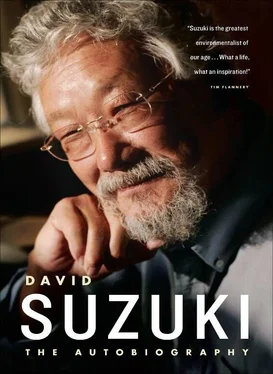




![David Jagusson - Devot & Anal [Hardcore BDSM]](/books/485905/david-jagusson-devot-anal-hardcore-bdsm-thumb.webp)







